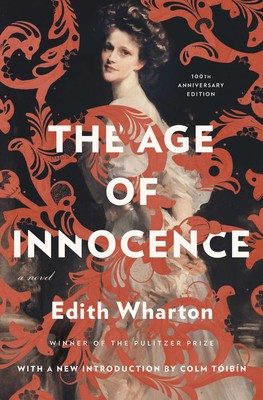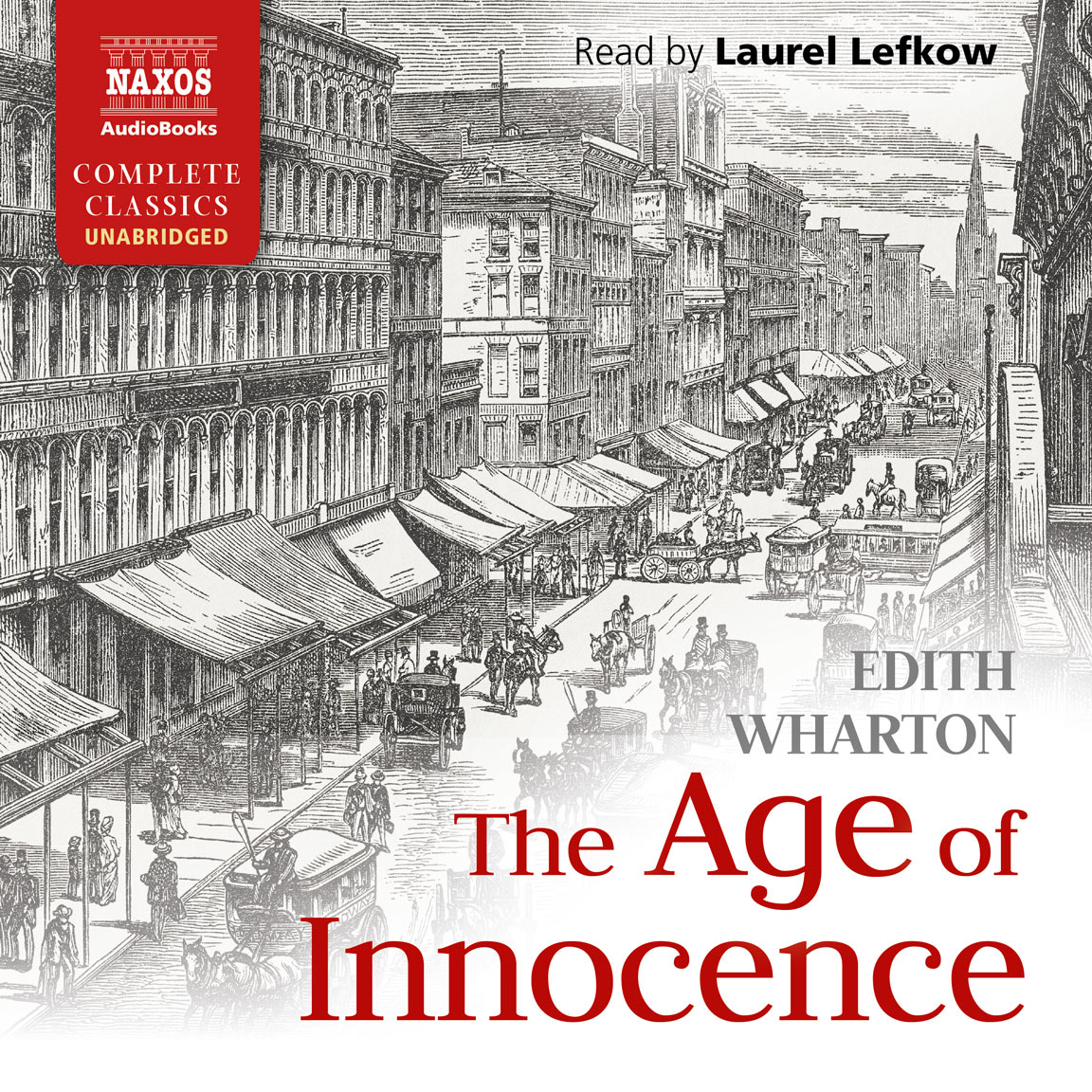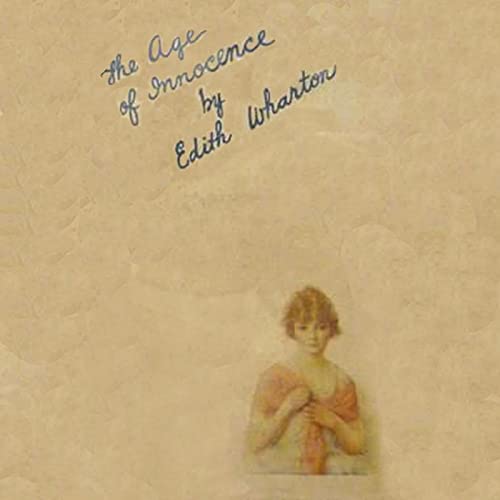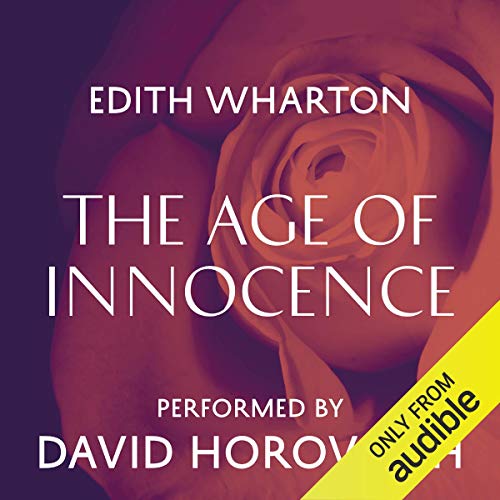Edith Wharton’s “The Age of Innocence” audiobook is a captivating tale of love, society, and tradition. It explores the complexities of upper-class life in 1870s New York.
This audiobook version of Edith Wharton’s classic novel brings the story to life through expert narration. Set in the elite circles of New York society, it delves into the struggles between personal desires and societal expectations. Protagonist Newland Archer finds himself torn between his duty to marry his suitable fiancée, May Welland, and his passion for the unconventional Ellen Olenska.
The novel’s rich descriptions and intricate character dynamics make it an engrossing listen. Ideal for fans of historical fiction and timeless love stories, this audiobook offers a deep dive into the mores and manners of a bygone era.

Introduction To ‘the Age Of Innocence’
‘The Age of Innocence‘ is a classic novel by Edith Wharton. This timeless story captures New York society in the 1870s. The novel explores love, duty, and social expectations. Listening to the audiobook brings this rich narrative to life.
The Life Of Edith Wharton
Edith Wharton was born in 1862 in New York City. She was part of a wealthy family and had a privileged upbringing. Wharton began writing at an early age. Her first novel was published in 1902.
She won the Pulitzer Prize for Fiction in 1921 for ‘The Age of Innocence‘. This made her the first woman to receive this award. Wharton wrote over 40 books in her lifetime. Her work often explored the lives of the rich and elite.
Historical Context Of The Novel
The novel is set in the 1870s, a time of change in New York. Society was strict, with many rules and expectations. Marriages were often arranged for social status, not love.
The story reflects the tension between old traditions and new ways. It captures the struggle between personal desire and social duty. This period, known as the Gilded Age, was marked by wealth and strict social codes.
| Aspect | Details |
|---|---|
| Setting | New York, 1870s |
| Theme | Love vs. Duty |
| Social Context | Gilded Age |
‘The Age of Innocence’ audiobook immerses listeners in this fascinating era. The narration brings the characters and their struggles to life. Enjoy the rich details and emotional depth of Wharton’s writing.

Main Characters And Their Relationships
“The Age of Innocence” by Edith Wharton explores complex relationships. The audiobook brings these characters to life vividly. The main characters are Newland Archer, Countess Ellen Olenska, and May Welland. Let’s delve into their relationships.
Newland Archer: Between Duty And Desire
Newland Archer is a young lawyer. He is engaged to May Welland. Yet, he feels a strong attraction to Ellen Olenska. Newland is torn between his duty and his desires. His engagement to May represents societal expectations. His feelings for Ellen symbolize a longing for change.
Countess Ellen Olenska: A Symbol Of Change
Countess Ellen Olenska is May’s cousin. She returns to New York after a failed marriage. Ellen embodies change and defiance of social norms. She seeks freedom and true love. Her presence challenges Newland’s perceptions. She is both a catalyst and a symbol of change.
May Welland: Innocence Personified
May Welland is Newland’s fiancée. She represents innocence and tradition. May is committed to societal values. She appears naive but is perceptive. Her character contrasts sharply with Ellen. May’s innocence is a key element in the story.
| Character | Role | Key Traits |
|---|---|---|
| Newland Archer | Lawyer | Torn, Dutiful, Passionate |
| Countess Ellen Olenska | New Yorker | Defiant, Free-spirited, Independent |
| May Welland | Fiancée | Innocent, Traditional, Perceptive |
Themes Explored In The Audiobook
Edith Wharton’s “The Age of Innocence” is a deep, thought-provoking tale. The audiobook brings to life its rich themes. Let’s delve into the key themes explored in this classic story.
Societal Expectations Vs. Individual Desires
The audiobook vividly portrays the conflict between societal expectations and personal desires. Newland Archer, the protagonist, faces this struggle. He is torn between his duty and his love for Ellen Olenska. Society demands conformity, but his heart desires freedom.
| Societal Expectations | Individual Desires |
|---|---|
| Marriage to May Welland | Love for Ellen Olenska |
| Maintaining social status | Pursuing true happiness |
The Illusion Of Innocence
This theme is central to the audiobook. Characters appear innocent, but their lives are full of hidden truths. May Welland embodies this illusion. She seems naive, but she is cunning. The audiobook reveals how innocence can be a deceptive facade.
- Appearances vs. Reality
- Deception in social interactions
- Unspoken truths
The Role Of Women In Society
The audiobook highlights the limited roles of women in society. Ellen Olenska challenges these roles. She seeks independence, unlike other women in her circle. This theme explores the struggle for female autonomy.
- Traditional roles and expectations
- Challenges faced by independent women
- The quest for personal freedom
Narrative Techniques And Literary Devices
Edith Wharton’s The Age of Innocence audiobook captivates listeners with its intricate narrative techniques and literary devices. Wharton masterfully uses these tools to enhance the story’s depth and meaning.
Wharton’s Use Of Irony
Wharton employs irony to highlight societal norms and personal struggles. Characters often say one thing but mean another. This creates a rich layer of meaning.
- Archer’s engagement to May is a prime example.
- He loves another, yet society binds him to May.
The ironic situations underscore the conflict between personal desires and social expectations.
Symbolism Throughout The Novel
Symbolism plays a crucial role in deepening the novel’s themes. Wharton uses symbols to represent larger ideas.
| Symbol | Meaning |
|---|---|
| Flowers | Innocence and beauty |
| Opera | Society’s stage |
The flowers Archer sends to May symbolize his pure intentions. The opera scenes reflect the public scrutiny characters face.
The Significance Of Setting
The setting in The Age of Innocence is not just a backdrop. It shapes the characters and their actions.
- New York’s elite society dictates behavior.
- Paris represents freedom and escape.
The contrasting settings emphasize the characters’ inner conflicts and desires.
Impact Of The Audiobook Experience
The audiobook of Edith Wharton’s The Age of Innocence offers a unique experience. Listening to the story brings the characters and settings to life in a way reading alone cannot. This immersive experience is enhanced through narration, music, and sound effects.
The Power Of Narration
Narration plays a critical role in audiobooks. A skilled narrator can make the story more engaging and emotional. The way the narrator uses different tones and voices can help listeners connect with the characters.
In The Age of Innocence audiobook, the narrator’s voice adds depth to the story. The listener can feel the emotions of the characters and understand their struggles better.
Music And Sound Effects: Enhancing The Mood
Music and sound effects are also important in audiobooks. They create a mood that enhances the storytelling. Background music can signify a change in scene or build tension. Sound effects can make scenes more vivid and real.
In The Age of Innocence audiobook, music and sound effects transport listeners to 1870s New York. This creates an immersive experience that’s hard to achieve with just text.
Comparing The Audiobook To The Printed Word
| Aspect | Audiobook | Printed Word |
|---|---|---|
| Engagement | High due to narration and sound | Depends on reader’s imagination |
| Accessibility | Can be listened to while multitasking | Requires dedicated reading time |
| Emotional Impact | Enhanced by voice and music | Varies with reader’s interpretation |
The printed word allows readers to visualize scenes in their own way. Yet, the audiobook provides a ready-made immersive experience. Both have their unique strengths and can complement each other.
Listening to The Age of Innocence audiobook can be a delightful experience. It combines powerful narration, music, and sound effects to bring Edith Wharton’s world to life. Whether you are new to the story or revisiting it, the audiobook offers a fresh perspective.
Critical Reception And Legacy
The audiobook of Edith Wharton’s The Age of Innocence brings the classic novel to life. It allows listeners to experience the story in a new way. Let’s explore its initial reception, its impact in modern times, and its various adaptations.
Initial Reception Of The Novel
The Age of Innocence was published in 1920. It received widespread acclaim. The novel won the Pulitzer Prize in 1921. Critics praised its detailed portrayal of New York society. They also admired Wharton’s exquisite writing style.
Readers were captivated by the story of Newland Archer. They found the social commentary thought-provoking. The novel quickly became a bestseller. It cemented Wharton’s status as a literary icon.
The Age Of Innocence In Modern Times
Today, The Age of Innocence remains a beloved classic. Modern readers appreciate its timeless themes. The audiobook has introduced the novel to new audiences. It provides an accessible way to enjoy Wharton’s work.
Schools and universities often include the novel in their curricula. Literary critics continue to study and discuss it. The story’s exploration of societal norms resonates with contemporary readers.
Adaptations And Their Impact
The Age of Innocence has inspired various adaptations. The most notable is the 1993 film directed by Martin Scorsese. The film starred Daniel Day-Lewis, Michelle Pfeiffer, and Winona Ryder. It received critical acclaim and several awards.
There have also been stage adaptations. These have brought the story to theater audiences. Each adaptation offers a fresh perspective on the classic tale.
| Adaptation | Year | Medium | Notable Cast |
|---|---|---|---|
| Film | 1993 | Movie | Daniel Day-Lewis, Michelle Pfeiffer |
| Stage | Various | Theater | Various |
These adaptations keep Wharton’s story alive. They help new generations discover the richness of her work.
Discussion On The Ending
The ending of Edith Wharton’s “The Age of Innocence” leaves many questions. It stirs debates among readers and listeners. This classic novel, available as an audiobook, offers a rich experience. Let’s dive into the final moments of this timeless story.
Interpretations Of The Novel’s Conclusion
The novel ends with Newland Archer choosing not to meet Ellen. This choice is puzzling to many. Some see it as a sign of his maturity. Others view it as a missed opportunity for true happiness.
The audiobook’s narration adds layers to this ending. The tone and pacing highlight Archer’s emotions. Listeners feel his inner conflict. This enhances the experience of Wharton’s masterful storytelling.
| Interpretation | Description |
|---|---|
| Sign of Maturity | Archer accepts his past choices and lives with them. |
| Missed Opportunity | Archer regrets not pursuing true happiness with Ellen. |
The Enduring Debate: Archer’s Final Choice
Why does Archer walk away from Ellen? This question sparks endless debates. Some argue he respects their past and her new life. Others think he fears disrupting his family’s peace.
The audiobook brings this debate to life. The narrator’s voice captures Archer’s hesitation. Each pause and inflection invites listeners to form their own opinions.
- Respect for Ellen: Archer does not want to disturb her new life.
- Family Peace: He avoids causing turmoil for his family.
- Personal Growth: Archer’s decision shows his acceptance of his life.
These reasons make the ending powerful. They keep listeners thinking long after the audiobook ends.

Exploring ‘the Age Of Innocence’ Beyond The Audiobook
Listening to Edith Wharton’s The Age of Innocence audiobook offers a rich experience. But there’s more to explore beyond the spoken word. Dive deeper into the novel’s themes, locations, and Wharton’s lasting impact.
Further Readings And Analyses
After enjoying the audiobook, reading critical analyses can deepen your understanding. Scholars have dissected Wharton’s portrayal of New York society. They explore themes of love, duty, and social pressure. Consider these insightful books and articles:
- Edith Wharton: A Critical Biography by R.W.B. Lewis
- The Custom of the Country by Edith Wharton
- Various academic journal articles on Wharton’s works
These sources offer perspectives on Wharton’s narrative style and thematic depth. They can enrich your appreciation of The Age of Innocence.
Visiting Places From The Novel
Many locations in The Age of Innocence still exist today. New York City is a living museum of Wharton’s world. Key locations include:
| Location | Description |
|---|---|
| Gramercy Park | An exclusive park symbolizing high society |
| Central Park | A place for characters’ thoughtful walks |
| Metropolitan Museum of Art | Where social events unfold |
Visiting these places can make Wharton’s New York come alive. Walk the paths her characters once tread. Experience the atmosphere she described with such detail.
Wharton’s Influence On Contemporary Literature
Edith Wharton’s work continues to influence modern writers. Her themes of societal expectations and personal freedom resonate today. Authors like Jeffrey Eugenides and Donna Tartt draw inspiration from her.
Wharton’s storytelling techniques also impact contemporary narratives. Her use of irony and social critique can be seen in today’s novels. Wharton’s influence ensures that her legacy endures in literature.
Exploring The Age of Innocence beyond the audiobook reveals a world rich in detail and significance. Delve deeper into its themes, visit its locations, and appreciate its lasting impact on literature.
Conclusion
Discover the timeless beauty of Edith Wharton’s “The Age of Innocence” through its captivating audiobook. This classic tale offers a deep dive into societal norms and personal conflicts. Enhance your literary journey with this engaging listen. Don’t miss the chance to experience Wharton’s masterpiece in a new and immersive way.



